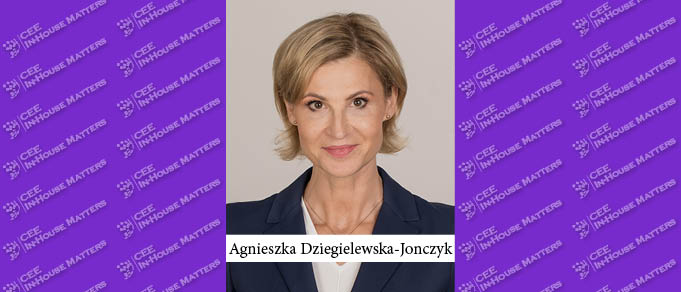“The construction business suffered from COVID-19, but so far less than others," says Agnieszka Dziegielewska-Jonczyk, GC of Skanska Central Europe. "We may see the impact in the coming months. As we are fully dedicated to our customers, Skanska construction sites in Central Europe are open."
“Keeping employees safe is a top priority for us, but keeping the company profitable and compliant with external and internal regulations is equally important,” Dziegielewska-Jonczyk says, noting that it is the GC’s job to ensure compliance standards are met. According to her, today's GCs should follow the business strategy and keep an eye on risk management. “It's fairly obvious to say that the construction market will change in the future and that we will have to appropriately adjust our portfolio of projects and equally focus on both private and public procurements," she concludes. "The company needs to remain profitable, which means we need to choose the right deals, especially given that we work in a very competitive environment. On the other hand, we need to closely monitor the current projects and have a good approach to possible disputes. Here, it is essential to maintain proper claim management. This is exactly the thing that helps to ensure profitability in the construction business.“
Dziegielewska-Jonczyk says that it’s interesting to look at the Polish in-house lawyers’ market, especially at this point, because of the results of the survey conducted by the Polish Corporate Lawyers Society survey’s results. “The survey’s goal was to find out what the current Polish in-house market looks like, and what most of our colleagues agreed on is that a modern in-house lawyer is, factually speaking, a new kind of a lawyer. His/her role is much different than that of a lawyer working in private practice; he/she needs to be much closer to business and much more equipped for it.”
She adds that in-house lawyers had to learn new skills, which are “usually not taught in law school." According to Dziegielewska-Jonczyk, "modern lawyers need to understand the business environment, manage complex projects, and communicate with large groups of people. All of this only comes as an addition to typical lawyer skills, which are the first instance. It seems that the in-house role has become, informally speaking, almost a new legal profession.”
Speaking about new trends among Polish in-house lawyers, Dziegielewska-Jonczyk says that they are “strictly connected with the lawyers’ engagement in the strategic management of the company." According to her, "nowadays, GCs are part of key business decisions. This trend is clearly indicated by most in-house lawyers in Poland. Also, given how high the regulatory standards are, GCs are much more involved in compliance, and most of the attention is focused there. Another visible trend is an openness to new technologies and digitalization. As GCs, we have to make sure that we adapt to the new way the business will be done in the future. It’s challenging to advise the business in a constantly changing environment, but it is the in-house lawyer’s job to help them navigate through the situation, to adjust to new regulations, and to stay profitable.”


